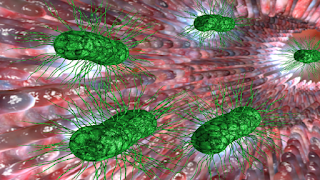The research team compared the gut bacteria of 6 people with anxiety with 6 healthy counterparts, through DNA analysis, and found significant differences.
After giving 72 mice antibiotics to kill their own bacteria, they injected them with bacteria taken from the feces of people with social anxiety disorder, which led to increased social fear responses in them, especially when they were placed with other mice, unlike those given "healthy" bacteria.
The study found that the experiment altered hormonal and immune responses in mice, suggesting that gut bacteria directly influence social fear and increased anxiety.
"The key point is that we need to take care of the health of our gut bacteria, particularly throughout development and into adulthood, to keep the social brain functioning properly," said Professor John Cryan, who co-authored the study published in the Proceedings of the National Academy of Sciences.
"Increasing the amount of fiber and fermented foods in the diet may have beneficial effects," he added.




Informative
ReplyDeleteInformative
ReplyDelete